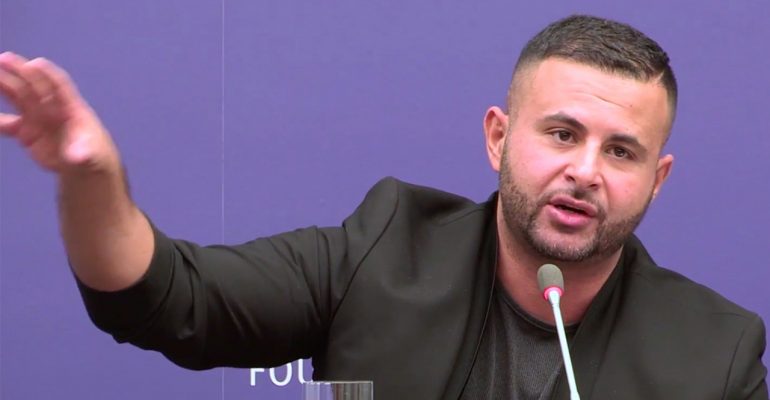Characterizing pro-Palestinian protesters as antisemitic is a ‘dangerous conflation’
June 8, 2024 2024-06-17 22:21Characterizing pro-Palestinian protesters as antisemitic is a ‘dangerous conflation’

Characterizing pro-Palestinian protesters as antisemitic is a ‘dangerous conflation’
Khaled Beydoun, a scholar of the First Amendment and Muslim identity, discusses free speech rights on campus and argues that Islamophobia and antisemitism have shared roots
As campus protests raged across the country and pro-Palestinian demonstrators were increasingly cast as antisemites, Khaled Beydoun feared the characterization was a disservice not only to Muslim students but also to their Jewish peers.
As an associate professor of law at Arizona State University and a scholar of the First Amendment, religion and national security, Beydoun was frustrated by what he saw as discussions of antisemitism overshadowing clear demonstrations of Islamophobia. He also disagreed with how the two prejudices were pitted against each other.
“To understand Islamophobia and the way it developed in the United States, you have to understand how antisemitism developed,” he said. “Once you see these two forms of bigotry as essentially arising from the same rotten core, you’re able to demystify the idea that they’re oriented against one another.”
Beydoun, a Muslim himself, has used his 2019 book—American Islamophobia: Understanding the Roots and Rise of Fear,—and his academic and social media work since, to chart the historic roots and legal implications of Islamophobia in the U.S.
Inside Higher Ed spoke with Beydoun about his view on campus protests, and how he links them to widespread discrimination against Muslims that was inflamed after the terrorist attacks of 9/11.
Read the conversation on: Inside Higher Ed







